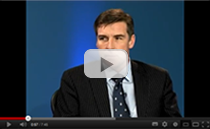- Home »
- Professions »
THE BASIS OF COVER - The Temporal Trigger
The Temporal Trigger forms the basis of how current pii policies view claims and liability
The Temporal Trigger refers to the event, agreed in advance, for which the insurance policy was taken. It will be understood that this event will have to occur with the time limits of the policy.
The policy will cover previously specified amounts and specified liability, in addition to reasonable costs including the costs of defending and settling a claim. In the case of fire or flood insurance, the Temporal Trigger will be the event of a fire or flood that causes damage to the insured property. This is simple to ascertain.
With Professional Indemnity Insurance, what is and what is not a Temporal Trigger is not always so easy to identify.
Two broad categories of trigger exist in liability policies, namely:
- Events occurring or occurrences - the insurer provides cover against a specified liability in respect of an event which happened during the policy period, whenever the claim is made; and
- Claims made – where liability exists when the claim is made, rather than when the event occurred.
Current professional indemnity insurance policy is typically understood on a 'claims made' basis. In 2005 Judge Moore-Bick stated:
 'It is now almost invariable for liability underwriters in general, and professional negligence underwriters in particular, to issue policies that provide cover on what is known as a ‘claims made' basis, that is, which provide the insured with an indemnity against losses arising from claims made against him, as opposed to events occurring, during the policy period.'
'It is now almost invariable for liability underwriters in general, and professional negligence underwriters in particular, to issue policies that provide cover on what is known as a ‘claims made' basis, that is, which provide the insured with an indemnity against losses arising from claims made against him, as opposed to events occurring, during the policy period.'
More on the basis of cover
- The Temporal Trigger
- Event-based triggers
- The Consequences of a 'Claims Based' Trigger
- The need to be able to notify circumstances
Discounts For all Professions
Purchase your business insurance with FreelanceInsure
and get
more cover for
less.

